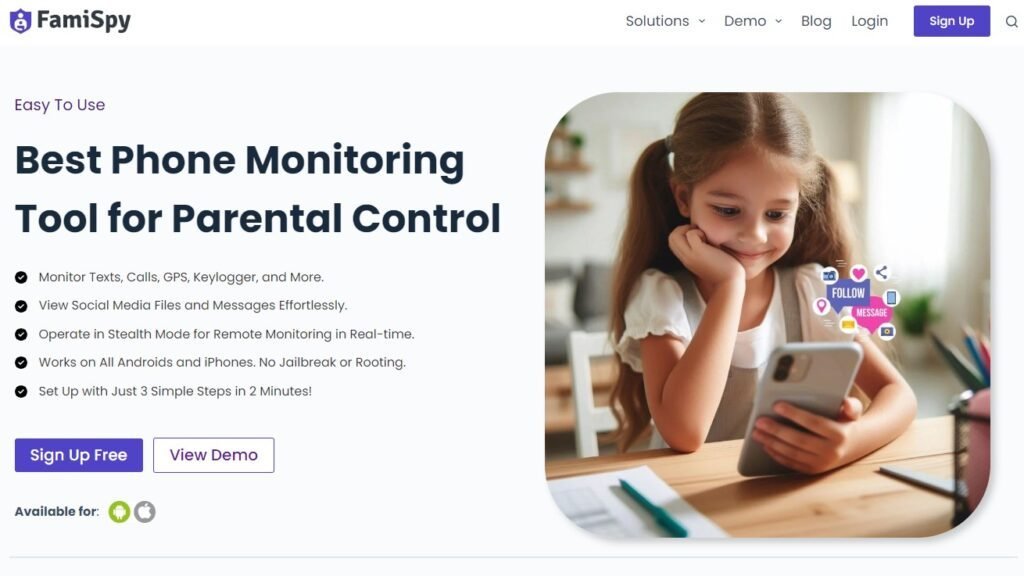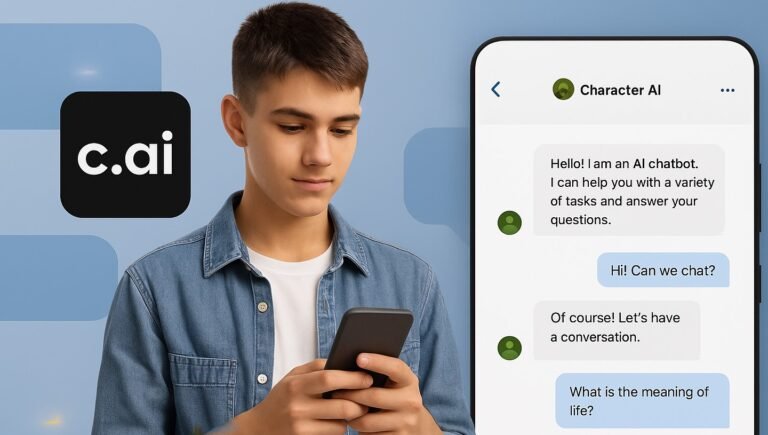The rapid rise of AI companion platforms, such as Candy AI, presents a new frontier in digital parenting. As AI relationships become more human-like, many parents rightly ask: Is Candy AI safe for my child to use? The simple answer is No, Candy AI is not safe for minors. This guide cuts through the hype. It provides parents with a clear, actionable safety plan. We explain the real risks involved and how to protect your family in the age of advanced AI.
The Bottom Line: Why Candy AI Poses Risks for Minors
For parents seeking a quick, definitive answer, here is the essential safety summary:
- Age Rating: Candy AI is designed for adults (18+). This is because of its sexually explicit content and mature themes.
- The Biggest Danger: The platform lacks strict age verification. It often uses just a click-through. Therefore, determined teens easily access pornographic or suggestive material.
- Safety Concerns: Risks include emotional manipulation and exposure to inappropriate content. Furthermore, financial pitfalls come from the confusing token system.
- Parent Action: Focus less on blocking the site. Instead, focus more on open communication and proactive monitoring tools. You must track usage on their devices.
What Parents Must Know About Candy AI’s Explicit Content
When we discuss the question, “Is Candy AI safe to use?”, the primary concern for parents is the content itself. Candy AI is known for its customizable AI companions. These companions engage in explicit chats, roleplay, and request AI-generated images that can be highly suggestive or pornographic.
- Explicit Imagery is Core: The platform includes mature themes. A persistent minor quickly bypasses any soft restrictions meant for general users. They access overly exposed or graphic images of their AI companion.
- Emotional Attachment Risk: These companions are designed to be emotionally responsive. Also, they are always available. Consequently, they create unhealthy digital attachments in developing adolescents. This potentially replaces real-world social development.
- Unfiltered Conversations: The AI generates highly personalized, unfiltered responses. Therefore, it exposes children to mature language, sexual themes, or complex scenarios. These are far beyond their age-appropriate understanding.
The Hidden Financial Pitfalls: Candy AI’s Token and Billing Model
Beyond content, parents must be aware of the financial risks. General Candy AI reviews often omit these. The platform employs a dual-cost model. This model quickly becomes expensive, even with a subscription.
- The Token System Trap: Key features like requesting AI-generated images or using the voice call function require tokens. Users purchase these in bundles. However, these tokens are consumed quickly. This leads to repeated, unexpected charges on linked payment methods.
- Discreet Billing: The charges often appear under a vague name like “EverAI.” This is discreet for adult user privacy. However, this makes it harder for parents to track why a suspicious charge appeared on the credit card statement.
- Unauthorized Purchases: Your child might have access to a linked family payment method. This includes a shared Apple or Google account. If so, they could rack up significant charges buying tokens for more image generations.
Actionable Safety Guide: Setting Digital Boundaries
The ultimate protection lies in parental oversight. Here is a breakdown of how to establish effective parental controls and limits. Use these to protect against platforms like Candy AI.
1. Focus on Open Dialogue and Trust
The first line of defense is not an app, but communication. First, have an honest conversation with your child. Discuss the purpose of AI companions and the boundaries of digital relationships.
- Define “Emotional Cheating”: Discuss the difference between entertainment and reliance. Ask, “Could talking to this AI interfere with your real friendships?”
- Discuss Privacy: Explain that their chat history is stored on a server. Therefore, it is not truly private. Discourage them from sharing real, sensitive personal data.
2. Implement Network and Device Restrictions
Use existing home technology to create hurdles for unauthorized access.
- Filter Adult Content: Adjust your home router settings. This filters out adult and NSFW websites across all devices.
- Utilize Native Controls: Set up Screen Time (iOS) or Family Link (Android). This lets you monitor app installs and browsing activity. It also sets daily time limits for all app usage.
3. Proactive Monitoring: The FamiSpy Advantage
You must ensure children aren’t bypassing soft controls. For example, they might use a private browser or a separate email. Therefore, a reliable parental monitoring app is essential. FamiSpy provides the visibility parents need.

- Comprehensive Activity Monitoring: FamiSpy allows you to view your child’s browsing history. You see this even in Incognito/Private mode. Consequently, you can see if they accessed the Candy AI website.
- Track the Installed Apps: Gain visibility into every application installed on their device. This lets you quickly identify a new, unapproved AI companion app.
- Keystroke Logging (Keylogger): This feature helps you understand what your child types into search bars or apps. It allows you to catch early signs of interest in explicit or restricted platforms.
- Stealth Mode: FamiSpy operates quietly in the background. It gives you a full, unbiased picture of their online behavior without immediate detection.
Safe Alternatives to AI Companions for Teens
Your child might seek digital companionship or creative writing help. If so, suggest alternatives. These are explicitly designed for younger users and feature built-in parental controls.
- Filtered Chatbots: Platforms like PinwheelGPT or other vetted, kid-safe AI assistants are great. They are often labeled 13+ or Teen. Designers built them with content filters and guardrails. This prevents exposure to explicit themes.
- Creative Roleplay Apps: Encourage collaborative storytelling apps. Focus on non-romantic or age-appropriate narrative creation.
FAQs About Candy AI Safety
Conclusion
In summary, evaluating “Is Candy AI safe for my kids?” yields a definitive no. Its adult-oriented content, coupled with lenient age verification and a tricky token system, makes it unsuitable for minors. However, parents must rely on a combination of open, non-judgmental dialogue and powerful tools. By setting clear boundaries and using a robust monitoring solution like FamiSpy, you can confidently navigate the new world of AI companions. This ensures a safe digital experience for your children.
Don’t Miss:
- FNF Unblocked: How to Play Friday Night Funkin’ Anywhere?
- Is FMovies Safe? And What Are the Best FMovies Alternatives?
- How to Put Parental Controls on My Child’s Phone
- Is TextNow Safe for Your Kids? A Parent’s Guide to Risk & Reality
- Is Character AI Safe for Kids? A Parent’s Guide to C.ai Age Limits and Safety








